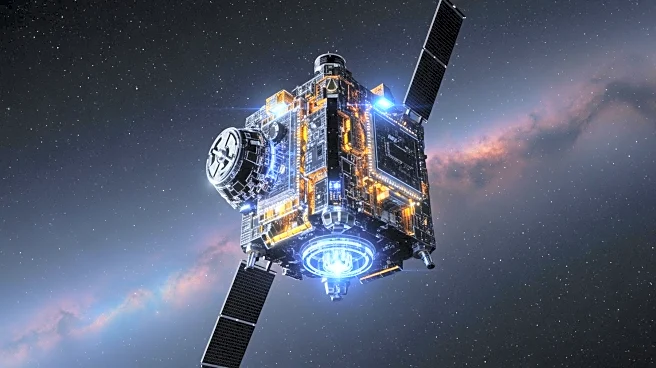What's Happening?
On July 1, astronomers detected a fast-moving object named 3I/ATLAS, which is traveling toward the Sun from beyond the Solar System. This marks the third time an interstellar visitor has been identified
entering our cosmic neighborhood. 3I/ATLAS is moving at a record speed of 245,000 kilometers per hour and is estimated to be up to 20 kilometers in diameter. Harvard astrophysicist Avi Loeb has suggested that the object's unusual characteristics, such as its orbital path close to Venus, Mars, and Jupiter, could indicate it is an alien probe. Loeb's team has posted a paper on the arXiv preprint server discussing the possibility of 3I/ATLAS being alien technology.
Why It's Important?
The suggestion that 3I/ATLAS could be an alien probe challenges conventional assumptions about interstellar objects and raises questions about the existence of extraterrestrial technology. If proven to be an alien probe, it would have profound implications for our understanding of life beyond Earth and the potential for communication with other civilizations. The study of such objects can also refine our methods for detecting and analyzing interstellar visitors, contributing to advancements in space exploration and astrobiology.
What's Next?
Researchers will continue to observe 3I/ATLAS to gather more data and determine its nature. This includes looking for signs of radio waves or other indicators of artificial origin. The scientific community may engage in debates and further studies to explore the possibility of alien technology, potentially leading to new discoveries about interstellar objects.
Beyond the Headlines
The idea of alien probes prompts ethical and philosophical discussions about humanity's place in the universe and the potential for contact with extraterrestrial civilizations. It also highlights the need for international cooperation in space research and the importance of open scientific inquiry in exploring the unknown.









